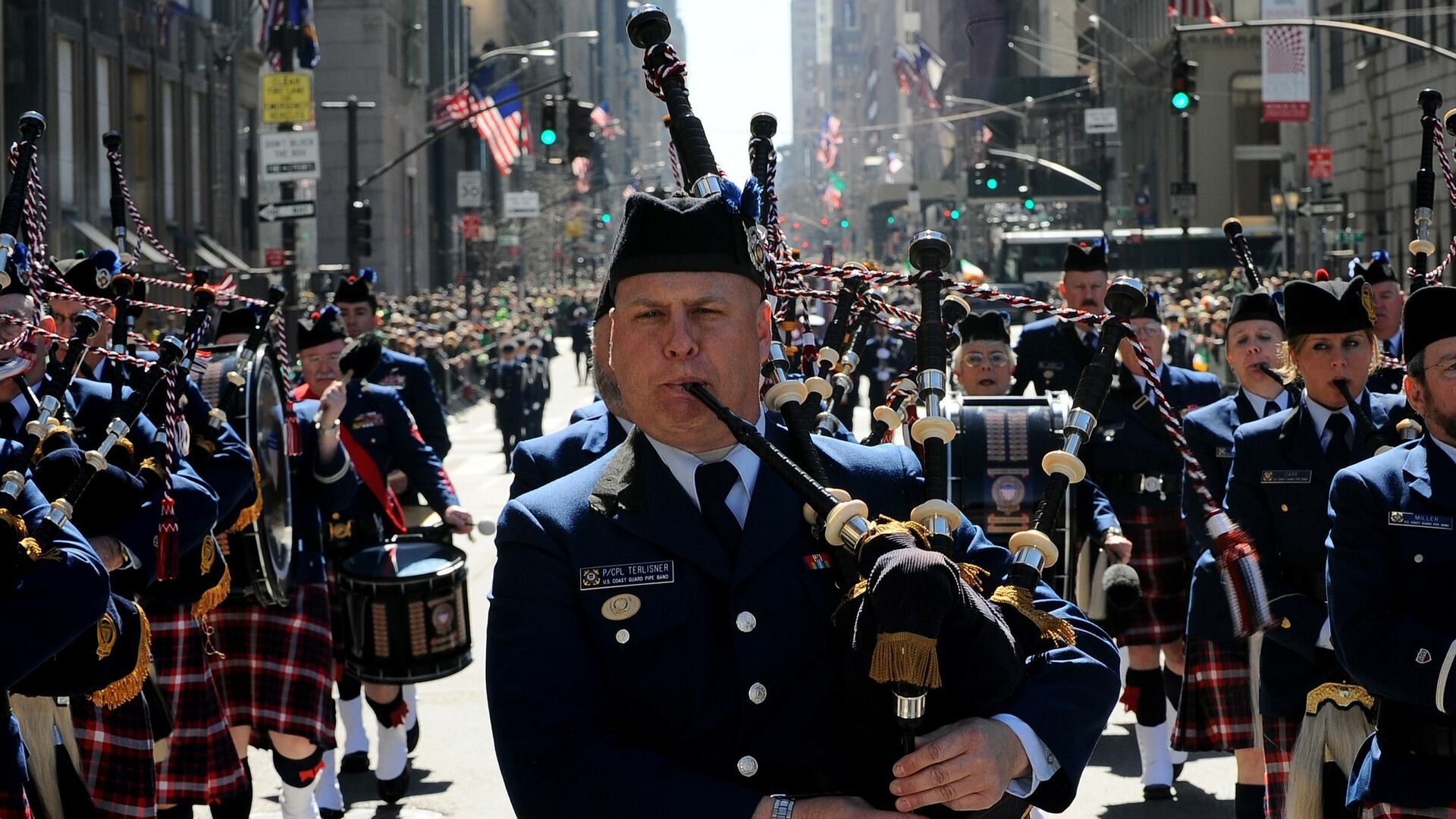So what's the deal with cops and bagpipes? It seems like every police event—especially funerals—features one or more bagpipe players. And they know only ONE SONG! A little variety might make them tolerable! Why are they here and not in Scotland? —Dirty Al
Those of us who have lived near bagpipes might be forgiven for assuming their purpose at funerals to be the fallen hero's final "screw you" to an ungrateful world. More charitably, you could say bagpipes are for situations where you want to have music but not in a way that might make people start having a good time.
Either way, we can all agree that few instruments are better at conveying the bleak futility of the human condition. Still, how did they catch on with American cops?
An answer may begin to suggest itself when I tell you that bagpipes are not unique to Scottish culture—they were culturally important in Ireland as well, where they featured prominently in traditional weddings and funerals.
It's true that Irish uileann pipes—that's pronounced "illin'," for you Run-DMC fans—aren't quite the same as their Scottish counterpart. Scottish pipes get their air from a bag the piper blows into, while Irish pipes use an arm-operated bellows. (Could this bellows-powered instrument be the long-theorized missing link between the twin hells of bagpipes and the accordion? Inquiring minds…)
In any case, there was enough overlap between the two musical traditions that Scottish-style pipes, which are louder and better suited to outdoor events, began to appear at American Irish funerals in the 19th and early 20th centuries—right around the time big-city police departments in the U.S. were becoming heavily Irish.
The sanitized explanation why so many Irish became cops and firefighters is that these were dangerous jobs that no one else was willing to take. More clear-eyed historians have noted that police and fire departments offered lots of public sector jobs for Irish political bosses like "Honest" John Kelly to spread among the members of machine-supporting Irish families.
By the mid-20th century, the tradition of bagpipes at police funerals was as well-established as the stereotype of the Irish cop. Arguably, both helped early 20th century police departments cohere as an in-group, fostering a clannish, we-look-after-our-own subculture that served its members well. Plus ça change…
Questions? Send them to dr.know@wweek.com.

